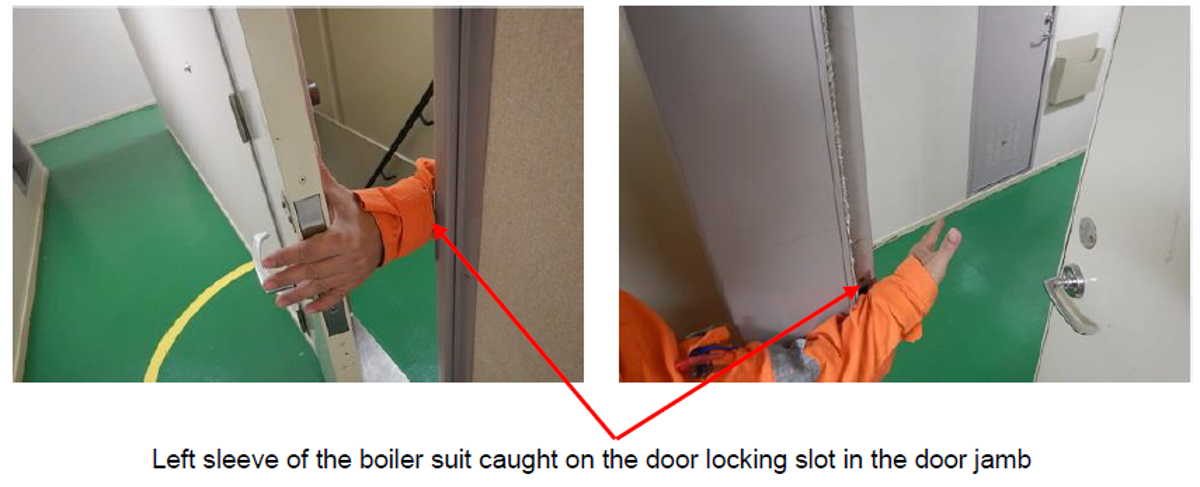LTI: Hand injury resulting from clothing catching on door
- Safety Flash
- Published on 27 June 2017
- Generated on 28 April 2025
- IMCA SF 16/17
- 2 minute read
Jump to:
A heavy door closed hard on a crew member's hand, injuring his thumb
What happened
Crew were standing down from mooring stations after a vessel left port.
A crew member was passing through a heavy door, when the left sleeve of his overalls got caught on the door locking slot in the door jamb. Before he could free the sleeve, the closing door shut hard on his hand, causing injury to the ball of his thumb.
First aid was rendered on board immediately. The crew member was referred to the doctor ashore for further treatment and was advised to sign off for further treatment thereafter.

What went wrong?
Immediate causes identified were:
-
- carelessness and lack of situational awareness – he did not safely pass the door frame resulting in coverall sleeve being snagged by the door jamb
- the cuff or sleeve of his overall was loose
- the door closing mechanism was not properly adjusted.
- carelessness and lack of situational awareness – he did not safely pass the door frame resulting in coverall sleeve being snagged by the door jamb
Causal factors:
-
- management – inadequate work standards: the weekly inspection did not adequately identify the potential hazards of door closing mechanism and unsafe door jamb.
The root cause identified was that risks were considered tolerable – crew were using the door on a daily basis without observing and reporting the existence of the potential hazards, and wearing overalls with sleeves loose.
Related safety flashes
-
IMCA SF 04/15
20 March 2015
-
IMCA SF 07/14
13 May 2014
IMCA Safety Flashes summarise key safety matters and incidents, allowing lessons to be more easily learnt for the benefit of the entire offshore industry.
The effectiveness of the IMCA Safety Flash system depends on the industry sharing information and so avoiding repeat incidents. Incidents are classified according to IOGP's Life Saving Rules.
All information is anonymised or sanitised, as appropriate, and warnings for graphic content included where possible.
IMCA makes every effort to ensure both the accuracy and reliability of the information shared, but is not be liable for any guidance and/or recommendation and/or statement herein contained.
The information contained in this document does not fulfil or replace any individual's or Member's legal, regulatory or other duties or obligations in respect of their operations. Individuals and Members remain solely responsible for the safe, lawful and proper conduct of their operations.
Share your safety incidents with IMCA online. Sign-up to receive Safety Flashes straight to your email.